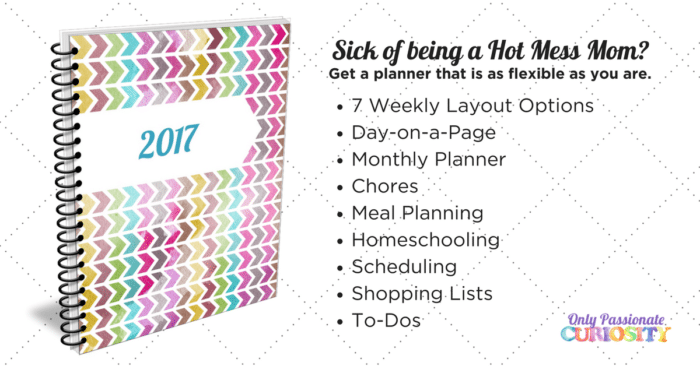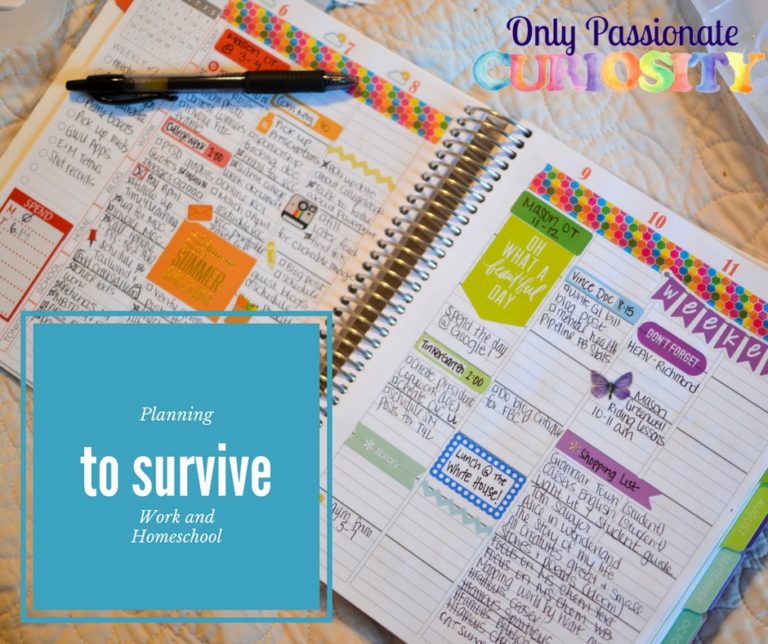Homeschool Planning- Three Methoods to Get it Done {Guest Post}
Today’s guest post is coming from Leah at As We Walk Along the Road. Leah is a fellow Schoolhouse Crew member, and has four lovely kiddos. I am really excited about the post she wants to share with y’all today, because it features something that I know many of you are thinking about this time of year. Last year, I posted about how I plan our school year, and it has become one of the most viewed posts on this blog.
Today, Leah is sharing three different ways to accomplish your homeschool planning- because the reality is one way probably won’t work for everyone! She also shares how she organized her school year with four kids. I hope you enjoy her post as much as I do!
If you a a new homeschooler, when you’re done with this post, take a second to check out her really helpful blog series on Getting Started Homeschooling– it’s pretty awesome.
-Heather
Homeschool Planning
Planning: for some it’s a great word, an indication of fun things to come. But for some the very word strikes fear. I happen to be one of the former, which is why I can write a whole post about planning. I have some friends who lean more toward the second description. But one thing I’ve learned in my years of homeschooling is that our schools function better with some sort of planning. Whether you like to plan in detail for the whole year, plan a quarter or semester at a time, or plan each week as it comes, planning can be beneficial to your homeschool even if it isn’t your favorite thing.
There are different approaches to planning depending on whether you like to plan a long period of time or plan short periods of time more frequently. In my homeschool planning I actually use a combination of these approaches. I’m going to take a brief look at the three main ways I’ve used in planning- planning a year in advance, planning for each quarter, or planning before each week. And then I’ll share how I’ve used all of these in combination to plan our homeschooling.
♦ Planning a year in advance
What it involves: This is some heavy duty planning. When you want to plan for the entire year at a time, you need to carve out a large block of time. You may even want to schedule a “planning retreat” of sorts in order to have the time to do your whole year’s planning at once. You may choose to plan in detail for the whole year- taking subjects and breaking them down into daily lesson plans. Or you may make overview plans for the year- a general description of what it is going to be covered each month/week.
When it works well: I’ve found that full year planning works very well if you’re using a textbook style curriculum and you want to break it down into daily plans for your child. Sometimes there’s a very good homeschool textbook, but the textbook doesn’t come with lesson plans. When you sit down with the book and plan the whole year at once it gives you an opportunity to see if other supplies will be needed through the year and to see if there are things you may need to tweak as you child uses the book.
General overview planning for the entire year can be useful if you use unit studies for your entire curriculum. Writing out a yearly overview can help you see clearly what topics you’re covering during the year so that you can make sure you are covering areas that you need to cover.
Drawbacks of this method: For me, the biggest drawback of using a year long planning method is that I don’t like to have to cross out and rewrite as the year goes on and we have to make changes. Inevitably, things arise that cause us to change our plans. And for a serious planner like myself, the constant changing and correcting is difficult.
♦ Planning for a quarter at a time
What it involves: This method can also take some time, but it isn’t nearly as time consuming as yearly planning. Quarterly planning involves breaking down your year into quarters (You could use semesters, but I think that’s too long in a planning sense.) and making your detailed daily lesson plans for the quarter. It is very similar to yearly planning in that you’ll take the student’s textbook and write out daily plans for the quarter all at one time. Like the yearly plan, this can also be a general overview of what you’re covering.
When it works well: Again, I think this works very well if you are using a textbook based curriculum, and you can break up the book into daily plans. A benefit to planning in quarters is that you can look forward to the quarter to make bigger changes- a different book, additional materials you want to include- and you don’t have to restructure an entire yearly plan. It’s also a benefit to unit study planning because it might be easier to know what you want to cover in a quarter than in an entire year.
Drawbacks of this method: Like the yearly planning, this can be time consuming. And you still may have to make changes in your plan as the quarter goes on.
♦ Planning for a week at a time
What it involves: This method involves taking your books and sitting down each weekend to plan for the next week. During your planning, you’ll break down the books and lessons into weekly assignments for your kids.
When it works well: Planning for a week at a time is definitely the most flexible planning method. If you find yourself constantly needing to adapt or change the plans, planning for only a week at time can be the best way for you to plan. If you find yourself in the middle of the week, and a child is struggling with a math lesson and needs more days, you can let him take his time.
Drawbacks of this method: Sometimes it’s difficult to find a block of planning time each week. You’re probably going to need an hour or so. And- I’ve learned from experience- if you don’t get that plan together, you’re struggling on Monday morning while the kids are off doing anything but school.
What planning looks like for me:
Last year I started a new curriculum that has all of the plans done for me. It was the first time in 10 years of homeschooling that I’ve done that. I just needed a break from all of the planning. But in all of the other years I’ve homeschooled, here’s the method I’ve used.
I sit down in the summer and plan an overview of our school year. I write down what each child is covering for the year, and I included what books they’re going to use. I sometimes write down the academic goals that I have for each child for the year.
I break my school year into quarters. My quarters don’t actually consist of three months each. They are August-October; November -February; March- May; and June-July. Before the quarter begins I take a look at what’s happened in the last quarter and I write down more specifically what we are going to be doing in the next quarter.
Then each week- usually on Sunday evening- I write out assignments for each child, keeping in mind the goals that I have in each subject. Even my assignment sheets are somewhat vague. I’ll write “Complete one lesson or test.” in the math section for each day. That way if they get hung up on a lesson and takes more than one day, we don’t have to change the whole assignment sheet, and they don’t feel pressured to keep going if they don’t understand.
During the week I keep a school journal. I have a block for every subject for every child. I record the specifics of each subject that were accomplished that day. So in the journal for math on Monday I’ll write- “p.140 lesson 6; problems 10-25”. That way I can look back at a record of exactly what each child did.
Whichever method of planning works best for you, know that planning is very beneficial. When we plan we have a goal that we are reading toward. Without a plan, there are no expectations and nothing to aim for. Then we have a tendency to get bogged down and never get going. So consider your family and pick a plan that works for your family.
Leah is a homeschooling mom of four children. Teaching, homemaking and providing a taxi service to a multitude of activities keep her pretty busy. But she also enjoys reading, blogging, and reviewing books and homeschool curricula. She writes about all of these things at As We Walk Along the Road.







